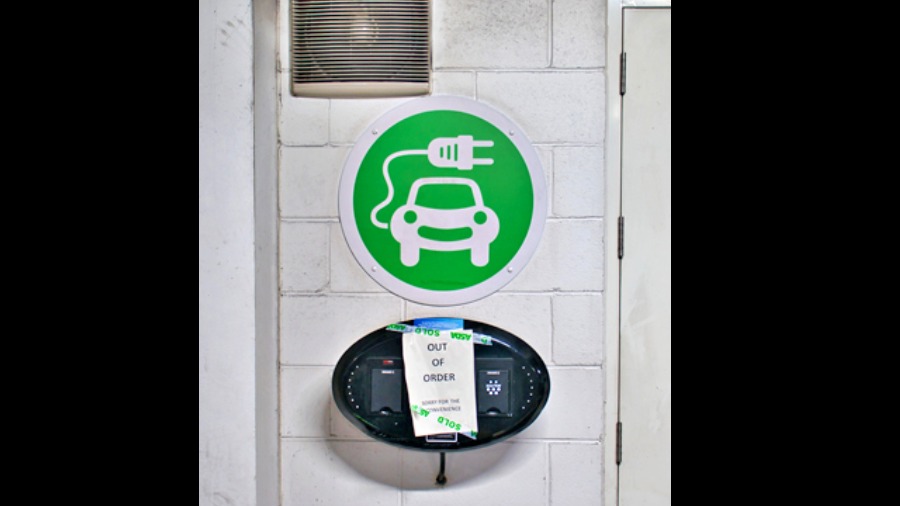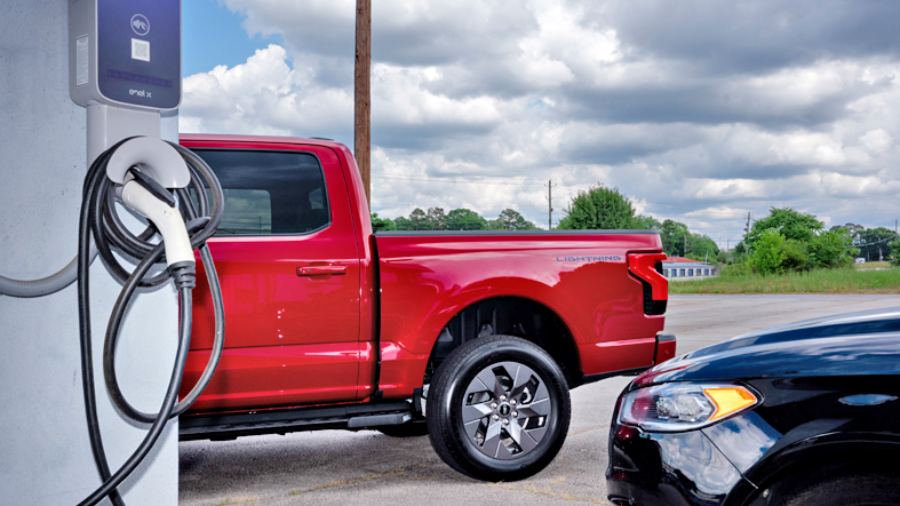The US government is doling out billions of dollars to encourage people to buy electric vehicles. Automakers are building new factories and scouring the world for raw materials. And so many people want them that the waiting lists for battery-powered cars are months long.
The electric vehicle revolution is nearly here, but its arrival is being slowed by a fundamental problem: the chargers where people refuel these cars are often broken. One recent study found that about one-quarter of the public charging outlets in the San Francisco Bay Area, US, where electric cars are commonplace, were not working.
A major effort is underway to build hundreds of thousands of public chargers. But drivers of electric cars and analysts said the companies that install and maintain the stations need to ensure those new chargers and the over 1,20,000 that already exist are reliable.
“Often, those fast chargers have real maintenance issues,” said Ethan Zuckerman, a professor at the University of Massachusetts Amherst, US, who has owned a Chevrolet Bolt for years. In the winter of 2020, Zuckerman was commuting about 150 miles each way to a job at MIT. Cold winter weather can reduce the driving range of electric cars.
He found a station but when he pulled up to it, the machine was broken. Another across the street was out, too, he said. In desperation, Zuckerman went to a nearby gas station and persuaded a worker there to run an extension cord to his car.
“I sat there for 2-1/2 hours in the freezing cold, getting enough charge so that I could limp to the town of Lee and then use another charger,” he said

Most electric vehicle owners primarily charge at home, so they use public chargers far less than people with conventional cars use gas stations. Many also report few issues with public charging or are more than willing to look past problems. And most battery-powered vehicles on the road today are made by Tesla, which has a proprietary charging network that analysts and drivers say tends to be reliable.
But all of that is changing. Electric vehicle sales are growing fast as established automakers roll out new models.
“If we want to see EV adoption continue to ramp up, as I do, we need to solve this problem,” said Joel Levin, the executive director of Plug In America, a nonprofit that promotes these vehicles.
The urgency isn’t lost on the automotive industry. Ford Motor has begun sending out contractors it calls “charge angels” to test the charging networks that it works with to provide energy to the people who buy its electric cars and trucks. Unlike Tesla, Ford doesn’t build and operate its own charging stations.
This spring, a member of that team, Nicole Larsen, pulled up to a row of chargers at a mall on Long Island, New York, US, plugged in her Mustang Mach-E and got to work. Larsen watched as a laptop recorded a detailed stream of data exchanged between the charger and the vehicle, and started taking notes of her own.
The chargers, built and operated by Electrify America, a division of Volkswagen, were working well that day. But Larsen said one had given her an error message the day before. When that happens, Larsen notifies Ford technicians, who work with the charging company to fix the problem.
Larsen said problems are uncommon in her experience, but they do come up enough that she can sometimes identify them by sight. “I can tell you ahead of time, this one’s going to give me an error on the screen,” she said.
There are few rigorous studies of charging stations, but one conducted this year by Cool the Earth, an environmental nonprofit in California, US, and David Rempel, a retired professor of bioengineering at the University of California, Berkeley, found that 23 per cent of 657 public charging stations in the Bay Area were broken. The most common problems were that testers could not get chargers to accept payment or initiate a charge. In other cases, screens went blank, were not responsive or displayed error messages.
Charging companies dispute the findings. Electrify America said there were methodological errors with the study, and EVgo, which operates a charging network, said it could not replicate the study’s results.
EVgo and Electrify America say they take reliability seriously and have employees keep tabs on their stations from centralised control rooms that can quickly dispatch technicians to fix problems.
“These are out in the wild by themselves,” said Rob Barrosa, a senior director of sales, business development and marketing at Electrify America. “You just can’t set it and forget it.”
NYTNS










